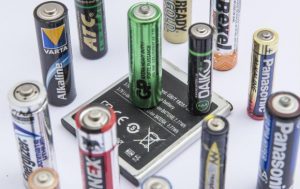Traditional batteries, loaded with negative and positive electrodes, could become a thing of the past thanks to the emergence of new salt batteries that do not explode. These batteries are not only characterized by being composed of salt but also by being submerged in solid electrolyte, a material “conducting ceramic ions based on aluminum oxide and sodium.”
The distinctive feature of this material is that it is non-flammable while allowing the separation of the anode, negative electrode, from the cathode, positive electrode. According to experts, this results in the lifespan of these batteries.
From the Swiss Federal Laboratories for Materials Science and Technology (Empa) who are working on this innovative project, they ensure the development of these “special batteries with enormous potential.” Furthermore, they explain that the cathode of a salt battery is based on common salt granules and nickel powder, while the metallic sodium anode only forms when the battery is charging.
Initially, salt batteries were designed for use in electric cars; however, they failed to demonstrate their usefulness in this field as they are heavy and slow to charge, according to Empa. “Current electric cars operate with lithium-ion batteries, which are lighter and charge faster,” the company explained.
 These batteries are more environmentally friendly.
These batteries are more environmentally friendly.
Batteries made with abundant and accessible materials
The manufacturers of these innovative non-exploding batteries explained that to function, they “use a combination of easily available materials such as salt and ceramics and generate energy through a rapid chemical reaction involving common salt and metallic powders.”
Additionally, these batteries do not use flammable or toxic materials, do not emit gases, nor react to fires or floods, according to Empa’s partner and salt battery manufacturer Horien. “In terms of safety, although salt batteries require an operating temperature of around 300 degrees Celsius, they cannot burn or explode,” stated researcher Meike Heinz.
In summary, these batteries cannot burn or explode. For this reason, they can also be used in places where lithium-ion batteries are not allowed, such as in mining and tunnel construction or offshore oil and gas production platforms.
 Traditional batteries have a shorter lifespan than salt batteries.
Traditional batteries have a shorter lifespan than salt batteries.
Benefits and drawbacks of salt batteries
These batteries are more durable, making them more reliable as they can be used in remote and exposed locations for years without maintenance. However, the high operating temperature could become a drawback as they require active heating powered by electricity to be ready for use.
For this reason, it is advisable to keep the battery warm, as it helps to make it more cost-effective and efficient.
Have you checked out our YouTube channel? Subscribe now!

